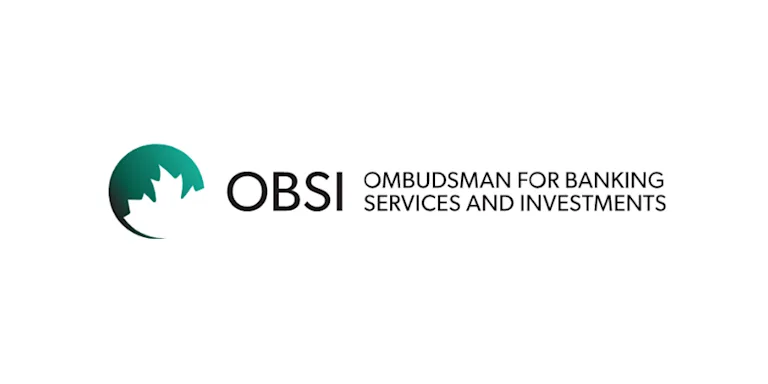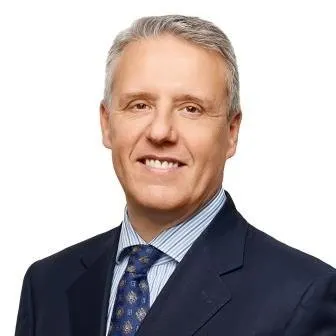
If you submit a complaint to your bank, they must have a process in place for handling it.
Most of us open a bank account at some point in our lives. Learn the rights (and responsibilities) that come with having a bank account, practical tips to protect yourself, and how to work out problems.
What you should know
“Last month I opened a new chequing account with my local credit union. After I’d signed on, they gave me a copy of my account agreement. I figured it would be a smart move to read through it. It was quite dull. But now I can be sure I won’t be caught by surprise with any hidden fees or charges.”
– Julian, Victoria, BC

People usually don’t think much about their relationship with their bank. But the important details are set out in a written agreement. When you open a bank account, you typically sign some forms. One’s usually a signature card, so the bank has a record of your John Hancock. For a chequing account, you have to sign a form to get personalized cheques. At least one of the documents you sign has the details on how the bank will operate your account.
For more on opening a bank account, see our step-by-step guidance.
Read your account agreement
Most bank account agreements have similar terms. But there are some differences. To find out exactly what you’ve agreed to, get a copy of the agreement from your bank and read it.
Service charges differ among banks and accounts. Depending on your account, you may be charged for the cheques you write and for other services the bank provides. For example, if you overdraft your account (that is, withdraw more money than is in the account), you may have to pay an overdraft fee, plus interest. Or you may have to pay a service charge every time you use an automated teller machine (ATM).
Often banks have package deals with a set monthly charge for a certain number of transactions. Many banks waive fees if you keep a minimum balance in your account.
The bank must tell you the service charges when you open an account
Your account agreement likely doesn’t specify the service charges. But it probably says you agree to the bank's general schedule of rates. And it permits the bank to debit your account for any charges the bank sets from time to time.
When you open an account, the bank must tell you its service charges. The charges are typically listed on its website as well. If you’re looking to open a bank account, shop around for the best option for your needs. We offer tips in our guidance on opening a bank account.
Changes to service charges
Banks change their service charges periodically. If they plan to do this, they must notify you in advance.
If you receive statements of account from your bank, you must be notified — in writing — at least 30 days before the effective date of the increase or new charge. If you don’t receive statements of account, your bank must display a notice starting at least 60 days before the increase or new charge takes effect. This notice must be posted at the bank’s branches, ATM machines, and other points of service.
Someone pays you with a cheque. You deposit it (either physically or via a phone app). Typically, your bank now credits the money to your account. It sends the cheque to the cheque-writer’s bank for payment. This process ideally ends with the cheque being “cleared.” (The money’s now available to you.) But sometimes a cheque bounces. That means there aren’t enough funds in the cheque writer’s account to cover it. The cheque gets returned to your bank stamped NSF (for non-sufficient funds).
Most account agreements make you responsible for cheques that don’t clear
Your account agreement likely says your bank can debit your account for the amount of the NSF cheque — even if you haven’t withdrawn the money. That’s true even if your bank is slow and doesn’t clear the cheque promptly. (Typically, your bank can only hold a cheque for four or five days before making the funds available to you.)
It’s possible your bank's delay contributed to a cheque not clearing. That is, there might have been enough money in the cheque writer’s account to cover the cheque when it was written, but your bank’s delay in presenting the cheque to the other bank meant that by the time your bank did so, there was no longer enough money in the account. In such a case, you may have a claim against your bank, but even this may be limited or denied by your account agreement.
Banks have their own policies on whether you can redeposit an NSF cheque, and if you can, how many times you can redeposit it.
An alternative to writing cheques
An electronic funds transfer (EFT) is an alternative to writing a cheque. This method removes uncertainty. You don’t have to worry if and when the cheque will clear. An EFT fails immediately if there isn’t enough money in an account.
When you have a bank card and personal identification number (PIN), you’re responsible for any money withdrawn from your account through the authorized use of your card. If you lose your card or find out someone has stolen your card or PIN, phone the bank immediately. Most agreements require you to phone within 24 hours.
You normally won’t be responsible for the unauthorized use of your card or PIN after you’ve told the bank about the loss or theft. But you must not have “knowingly contributed” to the unauthorized use — for example, by lending your card to a friend to withdraw money. And you must have been careful to keep your PIN separate from your card.
See our guidance on if your credit card is lost or stolen.
A joint bank account allows two or more people to make withdrawals, deposits, and payments, and to conduct other transactions from the same account. As a joint account holder, you share access to the account.
You're also responsible for any transactions made by the other account holders. For example, let’s say the joint account is overdrawn — one of the account holders has written a cheque for more money than is in the account. The bank can demand payment of the overdrawn amount from any of the joint account holders. If you end up paying more than your “share” of the overdraft, then it’s up to you, not the bank, to get the difference from the other account holders.
When a financial institution increases a fee or introduces a new charge, it must inform you in writing. You must get this information at least 30 days before the change takes effect. You can agree to have this information sent electronically.
The financial institution must also display notices about the charge:
in each of its branches
on its website
at automated teller machines (ATMs)
The bank must display these notices at least 60 days before the change takes effect. It must also explain where customers can get more information about the new or increased charges.
If you didn’t learn about these changes to fees until it was too late — you’d done your banking — you can make a complaint. For the steps to take in making a complaint, see below under “Work out problems.”
Protect yourself
In your account agreement with the bank, you likely agreed to review all entries on your account statement and advise the bank of any errors. Reviewing your statements can also alert you to important information. For example, the first you may learn of a cheque returned NSF (non-sufficient funds) may be from your bank statement.
You have a certain window of time to point out a mistake made by the bank — typically 30 days from the date of the account statement. If you don't, you’re considered to have agreed that the information in your statement is correct.
(There are some exceptions to this rule. For example, if someone forges your signature on your cheque. If this happens, you should immediately notify the bank and make a claim for the lost money.)
If the bank makes a mistake, you must prove it. For that reason, always get a receipt for any deposit you make. And keep your cancelled cheques and bank account statements for a reasonable time.
If you use an ATM, keep the receipts from the machine to compare them with your account statements. This way you’ll have a record of all the transactions in your account. (Note that any deposits and transactions made at an ATM on a weekend or holiday are processed on the bank’s next business day.) ATM receipts aren’t considered proof of actual deposits to your account. But they are a starting point. Only a bank teller receipt or a copy of the actual deposited cheque is accepted as evidence of a deposit.
If you have a personal chequing account, you expect your bank to honour your cheques when you write them. But unless you’ve arranged for overdraft protection, your agreement likely says the bank must honour a cheque only if there’s enough money in your account to cover it.
Overdraft protection means the bank will honour your cheque even if you have insufficient funds. Overdraft protection is not automatic. You have to buy it. (And it’s not especially cheap. It may be worth comparing other ways to cover yourself if you’re at risk of bouncing cheques.)
Another reason to consider overdraft protection
Overdraft protection helps not only with avoiding unexpected charges. If you pay for something and your bank doesn’t honour your cheque because there isn’t enough money in your account, your credit rating will suffer.
Work out problems
In dealing with a problem with your bank account, the first step is to make sure you have all the details. Collect any supporting documents, such as bank statements or your account agreement. Nail down the timeline of events, including the date you first noticed the problem.
Contact your financial institution. You can do this by phone, in person, or in writing. Contact a customer service representative or branch manager.
Describe the problem. Be polite and stay calm. Let them know how you’d like your complaint to be resolved.
Make a note of who you spoke to, the date and time, and what the outcome was.
If you’re not satisfied with the financial institution’s response, ask to see their complaints process or look for it on their website.
All banks and federally regulated credit unions must, by law, have a process in place for handling complaints. Provincially regulated credit unions should also have a process for handling complaints.
Follow the process. It may involve writing to a senior manager or an ombudsperson who works at the financial institution. An ombudsperson is an official who investigates complaints.
In your letter or email, you should:
include the word “complaint” in the heading or subject line
include your account number
set out the problem clearly
explain what you have done to try to resolve the problem, including who you have dealt with
explain what you want them to do to resolve the problem
Include copies of relevant documents such as bank statements or your account agreement.
If you want to be sure the other party receives your letter, send it by registered mail.
Keep a copy of your letter or email.
Keep the originals
Always keep the original of any document related to your complaint. When sending a document, send a copy, not the original.
If you don't get a reply in a reasonable time or you're unhappy with the financial institution’s response, you can complain to an independent agency. The Ombudsman for Banking Services and Investment (OBSI) investigates complaints about banking matters involving most banks and credit unions in Canada.
Before bringing a complaint to OBSI, you must first try to resolve things with your financial institution directly. If at least 90 days have passed since you submitted your complaint to the financial institution, or you aren’t happy with their response, you can complain to OBSI.
Once your financial institution has given you its final response, you have 180 days to bring your complaint to OBSI.
You can submit your complaint to OBSI through their website.
OBSI will investigate the complaint. If they find that the financial institution has acted unfairly or made a mistake, they will recommend that you receive compensation (of up to $350,000). If they do not believe compensation is due, they will let you know why.
If you still can’t solve the problem with the above steps, your next move may be to take legal action. You can consider suing the financial institution.
Note that there are time limitations on filing lawsuits. If you don’t have a lawyer, there are options for free or low-cost legal help.
Who can help

Financial Consumer Agency of Canada
Deals with complaints against federally-regulated banks and trust companies.

Ombudsman for Banking Services and Investments
Investigates complaints about banking matters involving most banks and credit unions in Canada.

Access Pro Bono’s Everyone Legal Clinic
Clinicians provide affordable fixed-fee services on a range of everyday legal problems.

BC Legal Referral Service
Helps you connect with a lawyer, notary or paralegal for a free 15- to 30-minute consult to see if you want to hire them.

BC Legal Directory
Search for a lawyer by community, area of law, or language spoken. From the Canadian Bar Association, BC Branch.


